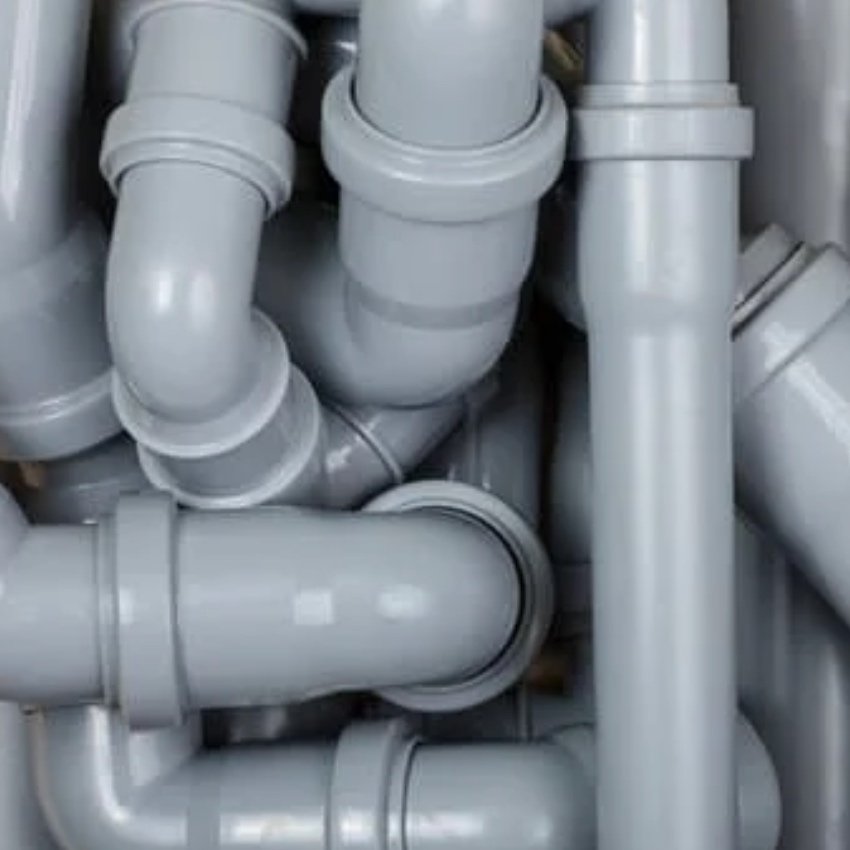What a Homeowner Should Know About Repiping an Old Home
While the prospect of replacing an entire plumbing system may seem daunting, the long-term benefits often outweigh the initial investment and temporary inconvenience.
Repiping an old home is a significant task that can improve the plumbing system's efficiency, water quality, and overall value of a property. For homeowners living in older houses, understanding the process, benefits, and considerations of repiping is crucial for making informed decisions about their home's infrastructure. While the prospect of replacing an entire plumbing system may seem daunting, the long-term benefits often outweigh the initial investment and temporary inconvenience.
Signs That Repiping May Be Necessary
Before delving into the repiping process, it's important to recognize the signs that indicate a home may need new pipes. Frequent leaks, low water pressure, discolored water, and visible corrosion on exposed pipes are all red flags. Additionally, homes built before the 1970s may have galvanized steel or lead pipes, which are prone to corrosion and can pose health risks. If a home exhibits these symptoms or falls into this age category, consulting with a professional plumbing service is advisable to assess the need for repiping.
The Repiping Process
Repiping involves replacing the existing water supply lines throughout the house. The process typically starts via a detailed inspection by professional plumbers to determine the extent of the work needed. Next, a plan is developed to route the new pipes with minimal disruption to the home's structure. Small access holes may need to be cut into walls and ceilings to reach existing pipes.
Modern repiping projects often use materials such as copper or cross-linked polyethylene (PEX) tubing. These materials are picked for their durability, resistance to corrosion, and ease of installation. The actual replacement of pipes is usually completed in sections, allowing parts of the home to maintain water service throughout much of the process.
Once the new pipes are installed, they are tested for leaks and proper pressure. Finally, any access points in walls or ceilings are patched and refinished to restore the home's appearance.
Benefits of Repiping
The advantages of repiping an old home are numerous and can notably improve the quality of life for residents. Improved water pressure and consistency in water temperature are immediate benefits that homeowners often notice. New pipes also eliminate the risk of leaks and water damage associated with deteriorating plumbing systems.
Perhaps most importantly, repiping can lead to better water quality. Old, corroded pipes can leach contaminants into the water supply, affecting both taste and safety. New pipes eliminate this risk, providing cleaner, safer water for drinking and household use.
From a financial perspective, repiping can increase a home's value and reduce long-term maintenance costs. It can also result in lower water bills by eliminating hidden leaks and improving overall system efficiency.
Considerations for Homeowners
While the benefits of repiping are clear, homeowners should be prepared for the realities of the process. The duration of a repiping project can vary depending on the size of the home and the complexity of the plumbing system, but it typically takes several days to a week for completion.
During this time, there can be some disruption to daily life. Water service may be intermittently shut off, and there may be workers present in the home. However, professional plumbing services strive to minimize inconvenience, often allowing residents to remain in the home throughout the process.
Cost is another important consideration. The price of repiping can vary widely based on factors such as the size of the home, the chosen materials, and the accessibility of existing pipes. While the upfront cost may be substantial, it's important to weigh this against the potential costs of ongoing repairs and water damage from an aging system.
Choosing the Right Professional
Selecting the right home repair company or professional plumbing service is crucial for a successful repiping project. Homeowners should look for licensed, insured, and experienced professionals who specialize in repiping older homes. Obtaining multiple quotes and checking references can help in making an informed decision.
A reputable plumbing service can provide a detailed assessment of the home's needs, a clear explanation of the repiping process, and a comprehensive estimate. They should also be able to address any concerns about the project's impact on the home's structure and daily life during the renovation.
Preparing for the Project
Once the decision to repipe has been made and a professional has been selected, homeowners can take steps to prepare for the project. Clearing access to areas where work may be performed, such as moving furniture away from walls, can help streamline the process. It's also advisable to discuss the project timeline with the plumbing team to plan for any necessary accommodations during periods of water shut-off.
Long-Term Maintenance
After repiping, proper maintenance can help extend the life of the new plumbing system. Regular inspections by professional plumbers can catch any issues early, preventing major problems down the line. Homeowners should also be mindful of water pressure and avoid using harsh chemical drain cleaners that can damage pipes over time.
Repiping an old home is a significant investment in a property's infrastructure and future. While it requires careful consideration and planning, the benefits of improved water quality, increased efficiency, and peace of mind make it a worthwhile endeavor for many homeowners. By understanding the process, benefits, and considerations involved in repiping, homeowners can make informed decisions about their property's plumbing needs and work effectively with professional plumbers to modernize their home's water supply system. With proper planning and execution, repiping can transform an old home's plumbing, providing reliable, efficient service for decades to come.
Big Kahuna Plumbing offers residential and commercial plumbing for Naples, FL, and surrounding areas. We provide a range of general plumbing services, including faucet repair, faucet installation, shower valve repair, shower valve installation, toilet repair, toilet installation, and general plumbing repair. Call (239) 350-3620 for more.

